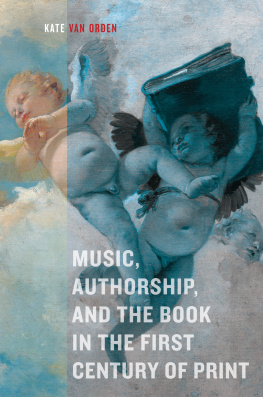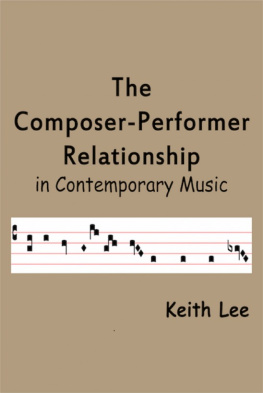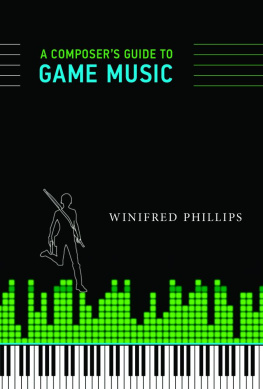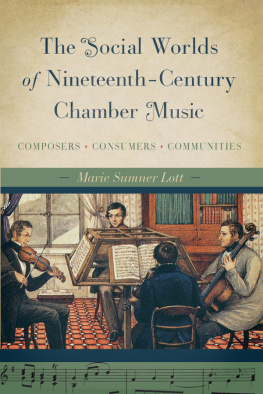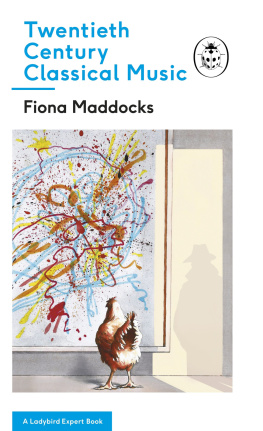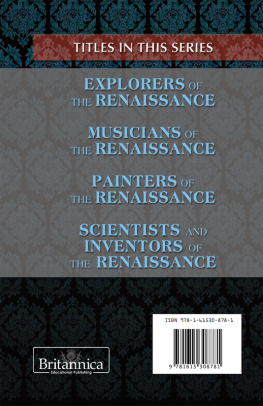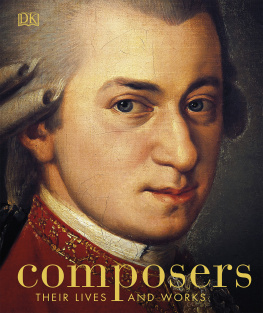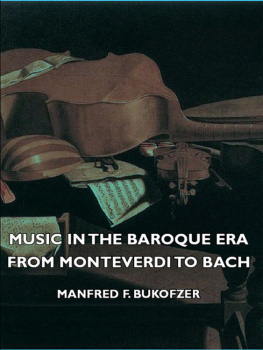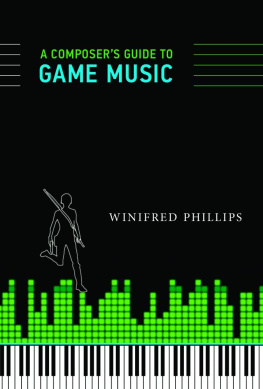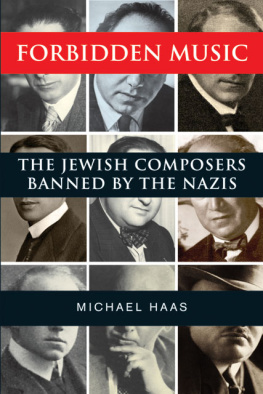

THE AHMANSON FOUNDATION has endowed this imprint to honor the memory of
FRANKLIN D. MURPHY who for half a century served arts and letters, beauty and learning, in equal measure by shaping with a brilliant devotion those institutions upon which they rely.
Music, Authorship, and the Book
in the First Century of Print
The publisher gratefully acknowledges the generous support of the Music Endowment Fund of the University of California Press Foundation.
Music, Authorship, and the Book
in the First Century of Print
KATE VAN ORDEN

University of California Press
BERKELEYLOS ANGELESLONDON
University of California Press, one of the most distinguished university presses in the United States, enriches lives around the world by advancing scholarship in the humanities, social sciences, and natural sciences. Its activities are supported by the UC Press Foundation and by philanthropic contributions from individuals and institutions. For more information, visit www.ucpress.edu.
University of California Press
Berkeley and Los Angeles, California
University of California Press, Ltd.
London, England
2014 by The Regents of the University of California
Library of Congress Cataloging-in-Publication Data
van Orden, Kate.
Music, authorship, and the book in the first century of print / Kate van Orden.
pages cm
Includes bibliographical references and index.
ISBN 978-0-520-27650-5 (hardback)
eISBN 9780520957114
1. Music printingHistory16th century.2. Music publishingHistory16th century.3. Music16th centuryHistory and criticism.I. Title.
ML112.V36 2013
070.579409031dc23
2013035478
Manufactured in the United States of America
23 22 21 20 19 18 17 16 15 14
10 9 8 7 6 5 4 3 2 1
In keeping with a commitment to support environmentally responsible and sustainable printing practices, UC Press has printed this book on Natures Natural, a fiber that contains 30% post-consumer waste and meets the minimum requirements of ansi/niso Z 39.48-1992 (r 1997) (Permanence of Paper).
To Howard and Martha, for everything
Contents
Illustrations
FIGURES
MUSIC EXAMPLES
Acknowledgments
No one who cooks, cooks alone. Even at her most solitary, a cook in the kitchen is surrounded by generations of cooks past, the advice and menus of cooks present, the wisdom of cookbook writers.
LAURIE COLWIN , Home Cooking: A Writer in the Kitchen (New York: Harper, 2000), p. ix
Authoring a book is not a solitary endeavor, and given the theme of collaboration threaded throughout this one, it gives me special plea sure to thank the people who helped create it. Many of the intellectual inspirations for this study are cited in the notes and bibliography; here let me acknowledge as well the more ephemeral encounters in classrooms, at conferences, and in private exchanges that likewise leave their impression on these pages. In 19941995, I was fortunate enough to participate in two pivotal seminars that set the stage for my future research, one taught by Martha Feldman at the Newberry Library in Chicago, and the second by Roger Chartier at the University of Chicago; both Feldman and Chartier subsequently contributed key articles to the collection I edited in 2000, Music and the Cultures of Print , and I thank them and all the authors of that volume for their field-defining essays.
Beginning in 2000, several academic generations of students at the University of California, Berkeley threw themselves into seminars on music and book history that allowed me to workshop the research presented here with tough, smart crowds that considerably improved my thinking. Numerous colleagues likewise rose to the challenge of conference sessions designed to investigate issues central to my research, and I hope this book repays their enthusiasm. I thank Jane Bernstein, Anthony Newcomb, and Jessie Ann Owens, for agreeing to speak on the session Print Culture in the Renaissance at the Sixty-Ninth Annual Meeting of the American Musicological Society in Houston, Texas in 2003; Elizabeth Eva Leach, Emma Dillon, Jane Alden, Henri Vanhulst, and Iain Fenlon, for agreeing to speak at the session Music and the History of the Book in Manuscript and Print at the Thirtieth Annual Conference on Medieval and Renaissance Music, Tours, France in 2005; and Kerry McCarthy, Jane Alden, and Michael Markham for speaking at the session Authors and Authority in the Renaissance at the Seventy-First Annual Meeting of the American Musicological Society in Washington D.C. In addition to colloquium invitations on several campuses, I thank Ccile Alduy for drawing me into the session French Poetry: Rethinking the Sixteenth-Century Canon at the Annual Meeting of the Renaissance Society of America in San Francisco in 2006; Iain Fenlon and Richard Wistreich for the invitation to participate in the Round Table Imparare, leggere, comprare musica nellEuropa del Rinascimento, at the Thirteenth Annual Colloquio del Saggiatore Musicale in Bologna in 2009; and Paolo Cecchi for the opportunity to keynote the Saggiatore Giornata internazionale di studi, Il compositore come autore e la musica tra testo e performance nellEuropa della prima et moderna in Bologna in 2013. Thomas Kelly and the Early Music Study Group at Harvard University read and workshopped my introduction in the fall of 2012. The intellectual energy of these gatherings has sustained this project from start to finish.
Initial stages of research began with a Studium Fellowship from the Centre National de la Recherche Scientifique to work under the direction of Philippe Vendrix at the Centre dtudes Suprieures de la Renaissance, Tours, France, from 2003 to 2005, which provided crucial access to original source materials and landed me in a phenomenal team of scholars with parallel interests at a formative point in my project. Subsequent research and writing were supported by a Presidents Research Fellowship in the Humanities from the University of California Office of the President in 20062007, a Gladys Krieble Delmas Foundation Fellowship for Research in Venice and the Veneto in 2008, a Humanities Research Fellowship from the University of California, Berkeley, and research grants from the Committee on Research at Berkeley.
This book owes much to the encouragement and advice of its first readers, who reviewed some or all of it in drafts: Jane A. Bernstein, Stanley Boorman, Paolo Cecchi, Richard Freedman, Timothy Hampton, Franco Piperno, Julie Wachowski, and a very helpful anonymous reader for UC Press. For insightful conversations and assistance with specific matters over the last years, thanks are owed to Jeanice Brooks, Philippe Canguilhem, Tim Carter, David Crook, Marc Desmet, Frank Dobbins, Martha Feldman, Iain Fenlon, Susan Filter, John Griffiths, Laurent Guillo, Daniel Heartz, Anthony Newcomb, Tommy Tristram, Richard Wistreich, and my dear friend and colleague Davitt Moroney, whose golden touch with old books never ceases to amaze and enlighten. Nicholas Manjoine improved my translations from French and provided boundless friendship at every stage of the process. And Peter Koch gave me tutorials in the art of fine printing at his press in Berkeley, California.
Paolo Cecchi, Esther Criscuola de Laix, Scott Edwards, and Giordano Mastrocola assisted in procuring photographs, and special gratitude goes out to the photo ser vice at the Vatican for filling an emergency order, as well as to Richard pek at the National Museum in Prague. Leon Chisholm and Margaret Jones provided research assistance, including nights and weekends.
Next page
